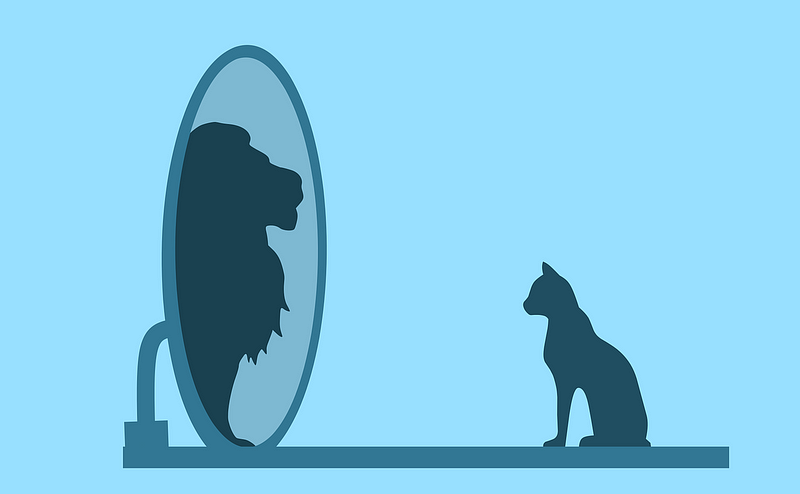Unraveling the Myth of 'Fake It Till You Make It'
Written on
Chapter 1: Understanding Personal Labels
Everyone has descriptors they use for themselves—titles that resonate with their identity. While having an ego can be seen as negative, it can also serve as a useful tool for self-reflection. For instance, I might say, "I am a writer," or "I am a marketer." These phrases feel accurate but are not the essence of who I am; they are tied to my ego.
If you were to take away my writing tools, would I still consider myself a writer? If I transitioned to a completely different lifestyle, such as working in a restaurant and not writing for years, the label would likely fade.
Moreover, the frequency of my writing does not determine my identity as a writer. Both a novice and a seasoned writer are writers simply by the act of writing. The only barrier preventing a beginner from continuing to write is the rejection of their own label.
The concept of "fake it till you make it" adds complexity to this discussion. It suggests a point where one stops faking and starts genuinely succeeding. However, the reality is that without labels, there’s no distinction between pretending and achieving.
In this video, "Fake It Till You Make It is Terrible Advice," we delve into when this mindset is appropriate and when it can be detrimental.
Section 1.1: The Nature of Self-Identification
We categorize ourselves and seek labels that we feel represent us. Conversely, we often exclude ourselves from labels that don't resonate.
For example, I won't wake up early to run because I don't identify as a runner. To become one, I would need to take actionable steps to align with that identity. But what if we reversed this thought process?
Imagine a scenario where memories don't exist, and I decide to run one morning. I could do so without any label. Similarly, a runner with no memory can still run. The absence of labels means that anyone can choose to identify with any role at any time.
I can claim, "I am a runner," and begin to run without needing prior validation of that identity.
Subsection 1.1.1: The Fluidity of Labels

Once you acknowledge that labels are flexible, it becomes clear that you can adopt or discard them in an instant.
This flexibility can have negative implications if we cling to harmful labels. For example, if I identify as an addict, I may feel trapped in a continuous cycle of recovery. Conversely, someone who has overcome addiction can choose to shed that label and redefine themselves.
These extreme examples illustrate how the labels we adopt influence our behavior.
Section 1.2: The Power of Choice
There are actions I wish to pursue but don't because I don't identify with the relevant label. The key takeaway is that detaching from labels and the ego can reveal their insignificance.
You can choose to drop labels that no longer serve you and adopt new ones that align with your aspirations. By doing so, you create opportunities for growth without the burden of previous identities.
Chapter 2: Reimagining 'Fake It Till You Make It'
In the video, "Fake It Till You Make It" Is the Worst Advice Ever, we explore the drawbacks of this mindset and how adopting a more authentic approach can yield better results.
Instead of pretending, simply act as if you are what you wish to become. For instance, if I decide I am an athlete, I can start engaging in sports without prior credentials.
Ultimately, whether I am a first-time runner or someone who runs regularly, the action remains the same. The distinction lies solely in the perception of labels.
In conclusion, embracing this perspective allows for a more genuine experience. If others perceive me as a runner while I run, that perception does not alter my actions or future intentions.
If you enjoy my insights, feel free to explore more of my work—Ethan Greavu. Thank you for your support, and if you're interested in becoming a member, you can find my referral link here.